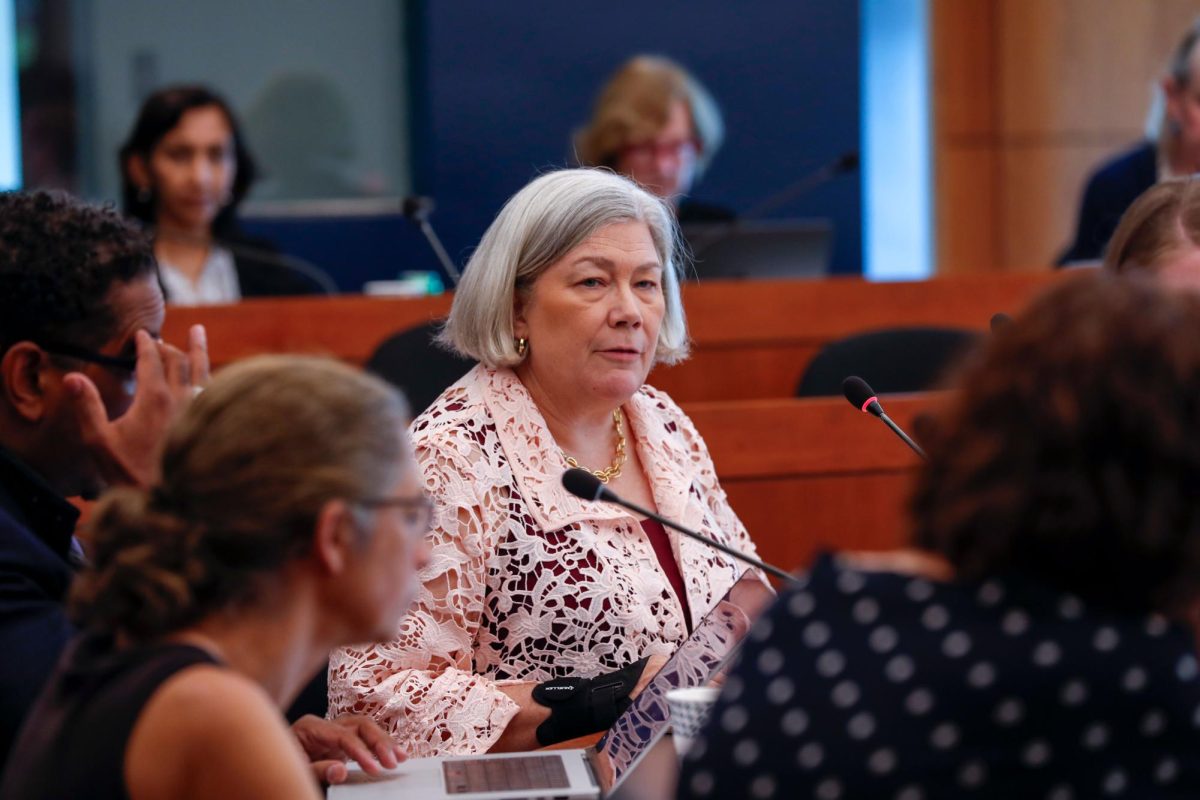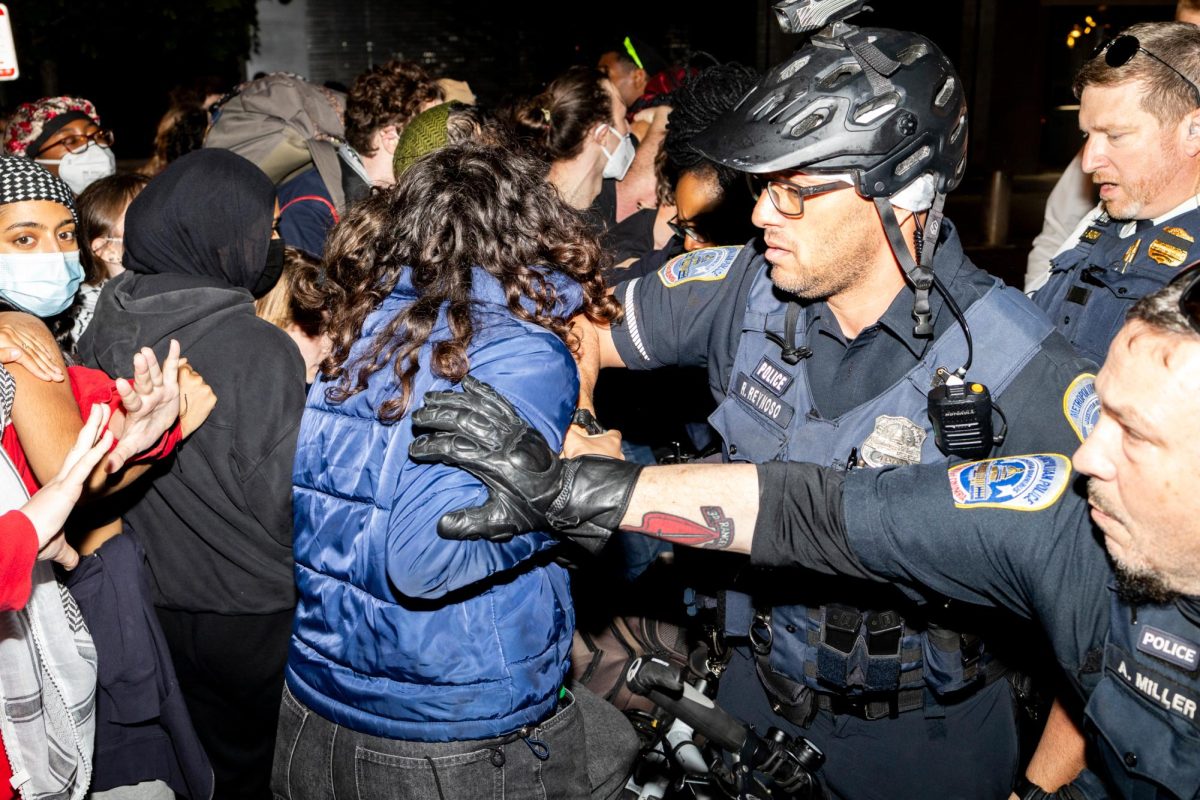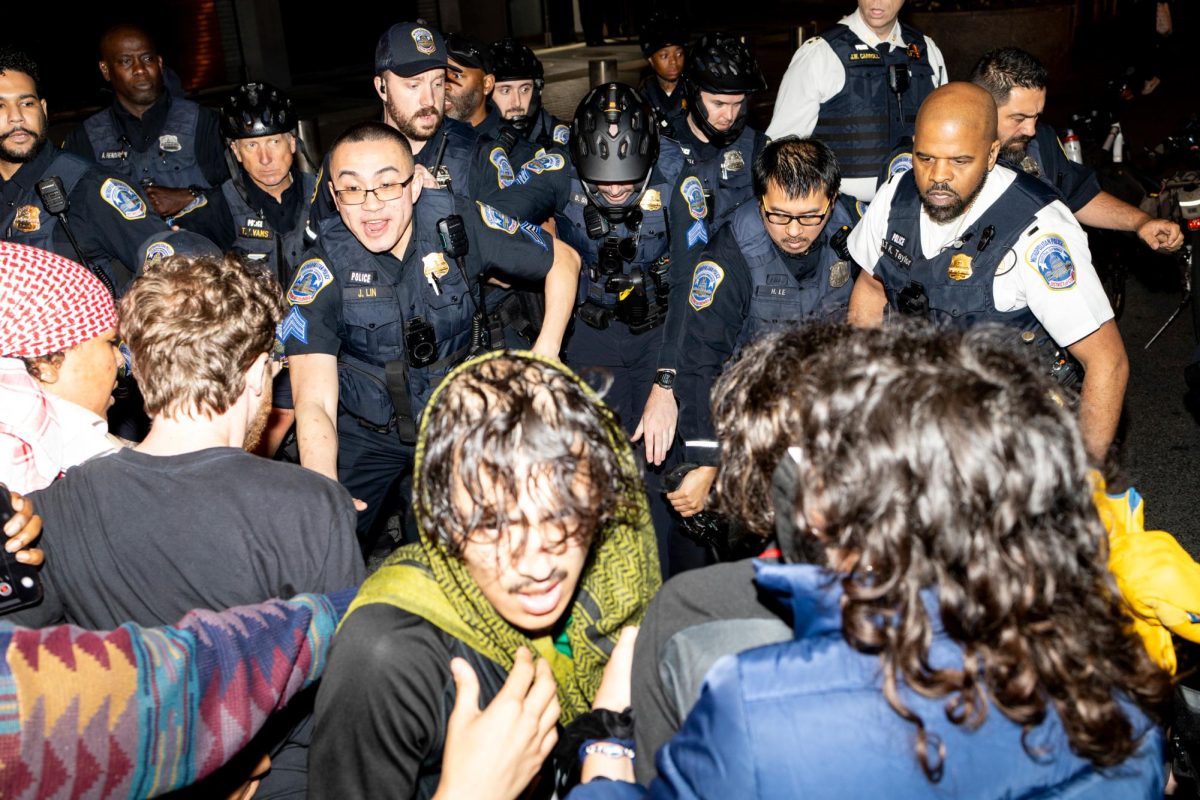Provost Chris Bracey said the University welcomed a “strong” increase in graduate students this fall at a Faculty Senate meeting Friday.
Bracey said the new class of graduate students is “driven” by higher international graduate student enrollment. He said he also convened an admissions policy task force to continue to “encourage” diversity in the student body after the Supreme Court struck down the consideration of race in college admissions in June and that Vice Provost of Enrollment and Student Success Jay Goff will deliver an enrollment update in November.
Former interim University President Mark Wrighton and University President Ellen Granberg said in June that they are “deeply disappointed” in the prohibition of race-conscious admissions and the decision would make building a diverse student body more difficult.
Granberg, attending her first senate meeting as University president, said she’s met with student organizations like the Institute for Citizen Leaders and attended staff meetings for departments including athletics and the Division for Student Affairs this fall. She said she also met with the Medical Faculty Associates’ Board of Trustees to discuss the organization’s financial stability.
Wrighton said in January that the MFA, an independent group of D.C. doctors who teach students in the School of Medicine and Health Sciences, will not meet their goal of recovering from their $200 million debt by the end of fiscal year 2023.
“There is certainly a ways to go, but there are some building blocks that have now been put in place that I think are going to help us improve the MFA’s financial condition,” Granberg said.
She said she attended an orientation for university presidents of schools that recently joined the Association of American Universities, an organization of “premier” research universities. She said the AAU conducts polls to collect data relating to higher education that isn’t publicly available but accessible through AAU membership.
She added that the Office of Communications and Marketing launched the Rev Up campaign, which targets potential graduate students through advertisements in “high-profile” locations like Ronald Reagan Washington National Airport and Capital One Arena.
“As I understand, it has been many, many years since we’ve done a comprehensive campaign to market our graduate programs,” Granberg said. “And certainly this is a time when we’re looking to increase enrollment so I’m delighted that’s going on.”
Irene Foster, the co-chair of the senate’s Educational Policy and Technology Committee, gave a presentation that said students are struggling with basic math and reading comprehension and classroom engagement before and during the COVID-19 pandemic. She said the Office of the Provost recommended that the senate should have a subcommittee on student success and retention to combat students’ academic struggles, faculty should ensure that students are taking the ALEKS exam for correct course placement and faculty should provide “intervention” by the third week of the semester if students are not making progress.
“Faculty are in fact the frontline workers on student success. We are the interface at the University,” Foster said. “We have to be involved in student success and student retention. It cannot occur at the provost office level, it has to occur at the frontlines.”
Sharon Reich Paulsen, the University’s executive vice president and chief administration officer, and GW Police Department Chief James Tate reviewed the implementation plan for arming GWPD officers and presented updates from phase one, which launched Aug. 30 and involved the arming of the department’s top two officers with 9 mm handguns. Tate said officials learned from phase one and feedback from faculty that they need to “clarify a number of items” in the department’s use of force policy, which outlines expected police conduct in specific circumstances, de-escalation efforts and evidence bias training.
“One of the things that I have learned and we’re now moving forward with is making sure that we sort of get outside the law enforcement discipline when it comes to how we approach de-escalation or how we approach implicit bias, how we approach mental health,” Tate said.
Paulsen also acknowledged how some faculty feel the decision to arm officers doesn’t align with the University’s shared governance principles, which establish that all faculty should have a role in “key decision making,” after the Board of Trustees only notified the senate’s Executive Committee before making the GWPD arming announcement in April. She said officials will continue to “closely consult” faculty throughout implementation and that she is “extremely pleased” the Physical Facilities and Safety Committee, a senate standing committee in charge of monitoring the implementation process, is providing feedback to the administration.
Paulsen said officials “anticipate” implementing phase two of the plan, which entails arming four lieutenants, by the end of the month as previously announced in a release published Sept. 1. Several senators expressed concern with the timeline of the decision’s rollout, including Jennifer Brinkerhoff, a faculty senator and professor of international affairs, international business, public policy and public administration, who argued GWPD should take more time to learn from phase one before proceeding.
“I was more concerned with the rapidity of moving from phase one to phase two, whether or not there’s an opportunity for learning during this phase,” Brinkerhoff said. “Why do we need to move quickly to phase two?”





